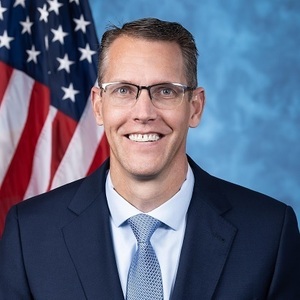Iowa lawmakers urge EPA to amend RFS RVOs

Rep. Randy Feenstra, R-Iowa
May 24, 2024
BY Erin Voegele
Rep. Randy Feenstra, R-Iowa, and Sens. Chuck Grassley, R-Iowa, and Joni Ernst, R-Iowa, on May 22 sent a letter to President Joe Biden and U.S. EPA Administrator Michael Regan urging the EPA amend its Renewable Fuel Standard blending requirements.
The letter highlights the EPA’s decision in 2023 to set the RFS RVOs for biomass-based diesel, advanced and overall biofuel at “drastically low levels,” which the lawmakers say are causing biodiesel plants to close.
The agency in June 2023 released its final RFS “set” rule, which set RVOs for 2023, 2024 and 2025. At the time of its release, the U.S. biofuels industry criticized the rulemaking for failing to account for explosive growth projected to occur in the renewable diesel and sustainable aviation fuel (SAF) industries.
Advertisement
Advertisement
“In March, it was announced that two biodiesel plants, one in Ralston, Iowa, and one in Madison, Wisconsin will close,” the three lawmakers wrote. “These closures result in job losses for workers, financial hardship for families, and real struggles for communities to replace integral business partners. Additionally, farmers will be left with fewer options, and less of a market, for their product at a time when net farm income is expected to decrease by nearly 26% in 2024.”
According to Feenstra, Grassley and Ernst, the closures of those plants have partially resulted from the EPA’s decision “to set RVOs at levels that were out of touch with the reality on the ground, and the growth potential of the biomass-based diesel industry production capacity.” They stress that the RVOs did not reflect the growth in renewable diesel capacity that had already occurred, or growth that was projected over the three-year period. “As a result, the value of RFS blending credits, known as RINs, have plummeted to less than a third of their previous value,” they wrote.
Advertisement
Advertisement
The letter cites data released by the U.S. Energy Information Administration in late February that shows prices for D4 biomass-based diesel renewable identification numbers (RINs) and D6 renewable fuel RINs had had already decreased 45% since the start of the year, when prices were already at a nearly three-year low. In its release, the EIA said D4 RIN prices are expected to remain subdued due to record-high credit generation from the production of renewable diesel.
“On June 3, 2022, the EPA finalized RFS volumes for 2021 and 2022, but also took the unprecedented step of reopening and modifying the previously finalized volumes for 2020,” the lawmakers wrote. “Despite the fact that the RFS internally self corrects when actual fuel demand is less than estimated in the rules, EPA cited COVID-related demand destruction as justification for reopening a rule and reducing the volume obligation. There is no internal correction in the RFS for scenarios where the EPA dramatically misses the mark in projecting ethanol and biodiesel availability and demand. If the EPA has the authority to reopen an RVO rule to reduce volume obligations, then the agency certainly has the authority to do so to increase volumes. With the precedent now set, the EPA should admit its error in forecasting the amount of ethanol and biomass-based diesel in the market for 2024 and 2025 and reopen the rule to increase the biomass-based diesel, overall advanced and overall volume obligations. Failure to do so will almost certainly result in additional biodiesel plant closures.”
With the letter, the lawmakers highlight the economic and environmental benefits of biomass-based diesel fuels, and note that the industry needs certainty and predictability in order to continue to grow. Future growth requires RVOs that adequately reflect the growth potential of biomass-based diesel production, they wrote. “Therefore, we urge you to immediately reconsider your past decision and raise the 2024 and 2025 RVO levels for biomass-based diesel, advanced biofuels and overall renewable fuels to support American farmers, rural communities, and our economy at large,” the lawmakers continued.
A full copy of the letter is available on Feenstra’s website.
Related Stories
The U.S. EPA on July 8 hosted virtual public hearing to gather input on the agency’s recently released proposed rule to set 2026 and 2027 RFS RVOs. Members of the biofuel industry were among those to offer testimony during the event.
The USDA’s Risk Management Agency is implementing multiple changes to the Camelina pilot insurance program for the 2026 and succeeding crop years. The changes will expand coverage options and provide greater flexibility for producers.
President Trump on July 4 signed the “One Big Beautiful Bill Act.” The legislation extends and updates the 45Z credit and revives a tax credit benefiting small biodiesel producers but repeals several other bioenergy-related tax incentives.
CARB on June 27 announced amendments to the state’s LCFS regulations will take effect beginning on July 1. The amended regulations were approved by the agency in November 2024, but implementation was delayed due to regulatory clarity issues.
SAF Magazine and the Commercial Aviation Alternative Fuels Initiative announced the preliminary agenda for the North American SAF Conference and Expo, being held Sept. 22-24 at the Minneapolis Convention Center in Minneapolis, Minnesota.
Upcoming Events










